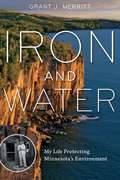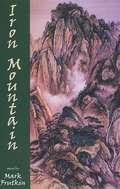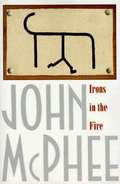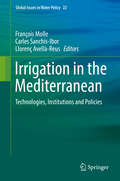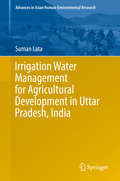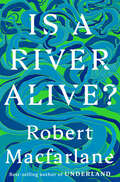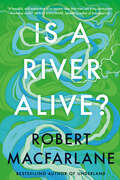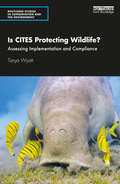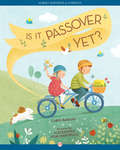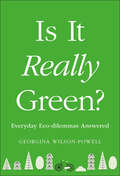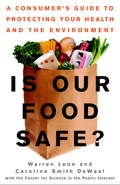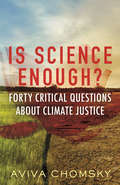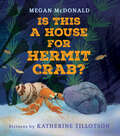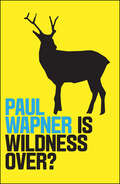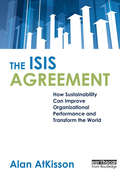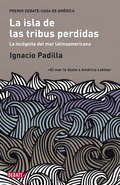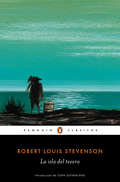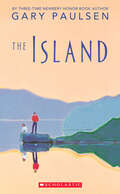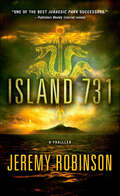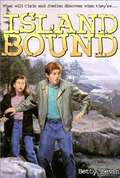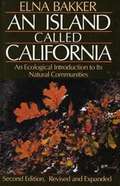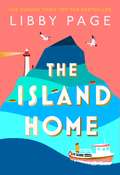- Table View
- List View
Iron and Water: My Life Protecting Minnesota's Environment
by Grant J. MerrittA memoir of family, mining pioneers and unscrupulous magnates, and the fight for Minnesota&’s natural resources In 1855 the Merritt family arrived in Minnesota, where a descendant, Alfred, would one day become one of the &“Seven Iron Men&”—builders of the first mines to tap the state&’s great mineral wealth in the Mesabi Range. Another Merritt, more than half a century later, would lead the efforts to protect Lake Superior from damage caused by mining. Iron and Water is Grant J. Merritt&’s memoir of his life&’s work on behalf of Minnesota&’s people and environment and also the story of a significant family in state history.Merritt&’s family played a key role in the struggle over natural resources in Minnesota—for the enrichment of mining pioneers, the prosperity of the state and its people, and the prospect of a secure and healthy future. This complex tale begins with the adventure of discovering iron ore and building the mines, railroads, and docks to move it, then devolves into the intrigues of business partnerships gone bad and attempts by John D. Rockefeller to defraud the Merritts. What follows is an engrossing account of Grant Merritt&’s years in the halls of state politics and the trenches of environmental activism in defense of Minnesota&’s North Shore and Lake Superior&’s waters. The author&’s tenure as head of the Minnesota Pollution Control Agency under Governor Wendell Anderson and his service on the first board of the Minnesota Environmental Quality Council take us behind the scenes of landmark legal cases and crucial moments in Minnesota history—particularly the notable Reserve Mining case, in which the company was found liable for serious environmental and health threats on the shores of Lake Superior and ordered to be shut down. In these pages we encounter the people who were critical to this history, from robber baron Rockefeller to judges, activists, and politicians, including Walter Mondale and Jim Oberstar. In chronicling both the discovery of vast iron deposits on the Mesabi Range and the fight to save Lake Superior and Minnesota&’s natural riches, Iron and Water reveals how, whether alone or together, individuals wield the power to change the world.
Iron Mountain
by Mark FrutkinOf one of Mark Frutkin’s previous books of verse, Poetry Canada Review said it provided "a supernatural fusion of the earthbound with the heavenly to forge the lightning of poetry." Divided into two sections, one inspired by ancient Chinese art, the other limning the ambiguities and incongruities of the contemporary human condition, Frutkin’s new volume of poetry, Iron Mountain, often presents human beings wandering in the wilderness between two abysses while still appreciating the smell of pines, the softness of the rain, the brilliance of the stars, the hum of the computer, and the jostle of the crowd on the bus. These are poems of translucent delicacy harbouring hard truths where "A Taoist priest gulps the elixir/of immortality and blows away/in the dust,/a young Chinese girl/bumps me in the crowd/prompting a shiver/like a startled phoenix/dressed in my skin." In Frutkin’s vision the entire world is a written landscape that speaks to us of time, of change, of immutability, of radiant emptiness.
Irons in the Fire
by John McpheeAnother of McPhee's anthologies of well-written, highly informed, and very enjoyable essays that originally appeared in the New Yorker magazine. Joihn McPhee has a talent for making any subject interesting, and the diversity of the subjects he shares with his readers just in this book is astounding - from branding cattle to mountains made of tires to forensic geology to Plymouth Rock, and more.
Irrigation in the Mediterranean: Technologies, Institutions and Policies (Global Issues in Water Policy #22)
by François Molle Carles Sanchis-Ibor Llorenç Avellà-ReusMediterranean irrigation is diverse due to, among other factors, the relative importance of water in the economy of each country, varied levels of aridity, heterogeneous levels economic, social and technological levels of development, and differences in political and social organization. However, most of the Mediterranean countries face similar problems to meet their water demands because of the scarcity and variability of renewable resources, growing water requirements from non-agricultural sectors, increasing environmental concerns related to water quality and environmental degradation, a social demand for larger public participation, and important technological changes. The time has come to reconsider the “not one drop lost to the sea” philosophy of yesteryears largely and to 'live within limits'.This book focuses on eight selected countries (Tunisia, Morocco, Spain, France, Italy, Turkey, Israel and Egypt) and provides a comparative perspective that both thoroughly explores their specificities and identifies the common challenges faced by the irrigation sector in these countries. The book has been written at a critical moment, when the continued application of a supply-side water management model is revealing its unsustainable nature in numerous places; when significant technological changes are taking place in the irrigation sector; when new forms of management and governance are widely held as badly needed; and finally, when climate change is compounding many of the difficulties that have characterized irrigation policies and practices in the past decades.This complicated future context makes Mediterranean irrigation face various political dilemmas on water management, raising social tensions, triggering territorial and land conflicts, and stimulating new technological developments. This book provides a timely analysis of the particular trajectory of eight Mediterranean countries in these uncertain transformations, and attempts to identify the best strategies to avert or overcome future risks.
Irrigation Water Management for Agricultural Development in Uttar Pradesh, India (Advances in Asian Human-Environmental Research)
by Suman Lata<p>This book focuses on irrigation sources together with water management for agricultural development in Uttar Pradesh state of India. Being the most populous state of the country, it bears a burden of feeding about 199 million people of which major section relies on agriculture for their subsistence. This study makes comparison in the growth trends in the irrigated area, crop land use patterns and crop productivity at the district level in different periods of time. The book emphasizes on irrigation water management to optimize crop yields in order to increase Water Productivity of crops in low productivity regions of the state applying suitable technology. <p>This book appeals to researchers and students in geography and planning working on the topics of agriculture as well as irrigation and water management aspects.</p>
Is a River Alive?
by Robert MacfarlaneA #1 Sunday Times (UK) Bestseller • A New York Times "New Nonfiction to Read This Spring" Recommendation • A Guardian "Nonfiction to Look Forward To in 2025" Pick • A Washington Post "Book to Watch For" in 2025 • A Financial Times "What to Read in 2025" Selection • A Goodreads Most Anticipated Book of 2025 From the best-selling author of Underland and "the great nature writer…of this generation" (Wall Street Journal), a revelatory book that transforms how we imagine rivers—and life itself. Hailed in the New York Times as “a naturalist who can unfurl a sentence with the breathless ease of a master angler,” Robert Macfarlane brings his glittering style to a profound work of travel writing, reportage, and natural history. Is a River Alive? is a joyful, mind-expanding exploration of an ancient, urgent idea: that rivers are living beings who should be recognized as such in imagination and law. Macfarlane takes readers on three unforgettable journeys teeming with extraordinary people, stories, and places: to the miraculous cloud-forests and mountain streams of Ecuador, to the wounded creeks and lagoons of India, and to the spectacular wild rivers of Canada—imperiled respectively by mining, pollution, and dams. Braiding these journeys is the life story of the fragile chalk stream a mile from Macfarlane’s house, a stream who flows through his own years and days. Powered by dazzling prose and lit throughout by other minds and voices, Is a River Alive? will open hearts, challenge perspectives, and remind us that our fate flows with that of rivers—and always has.
Is a River Alive?
by Robert MacfarlaneFrom the celebrated writer, observer and naturalist Robert Macfarlane comes a brilliant, perspective-shifting new book, which answers a resounding "yes" to the question of its title.At the heart of Is a River Alive? is a single, transformative idea: that rivers are not mere matter for human use, but living beings, who should be recognized as such in both imagination and law. Macfarlane takes the reader on a mind-expanding global journey into the history, futures, people and places of the ancient, urgent concept.Around the world, rivers are dying from pollution, drought and damming. But a powerful movement is also underway to recognize the lives and the rights of rivers, and to re-animate our relationships with these vast, mysterious presences whose landscapes we share. The young "rights of nature" movement has lit up activists, artists, law-makers and politicians across six continents—and become the focus for revolutionary thinking about rivers in particular.The book flows like water, from the mountains to the sea, over three major journeys. The first is to northern Ecuador, where a miraculous cloud-forest and its rivers are threatened with destruction by Canadian gold-mining. The second is to the wounded rivers, creeks and lagoons of southern India, where a desperate battle to save the lives of these waterbodies is underway. The third is to northeastern Quebec, where a spectacular wild river—the Mutehekau or Magpie—is being defended from death by damming in a river-rights campaign led by an extraordinary Innu poet and leader called Rita Mestokosho.Is A River Alive? is at once a literary work of art, a rallying cry and a catalyst for change. It is a book that will open hearts, spark debates and challenge perspectives. A clarion call to re-centre rivers in our stories, law and politics, it invites us to radically re-imagine not only rivers but life itself. At the heart of this vital, beautiful book is the recognition that our fate flows with that of rivers—and always has.
Is CITES Protecting Wildlife?: Assessing Implementation and Compliance (Routledge Studies in Conservation and the Environment)
by Tanya WyattThis book assesses the Convention on International Trade in Endangered Species of Wild Fauna and Flora (CITES), examining both implementation and compliance. Humans are causing a biodiversity crisis, where 1 million species are facing extinction. Species are dying, in no small part, because they are overexploited, poached and trafficked and CITES is the main international instrument designed to protect traded wildlife. Does the state of the world’s species mean CITES is failing? This book explores the implementation of and compliance with CITES by all 183 member countries. It is imperative we know the nature and extent of the implementation of and compliance with CITES legislation in all parties to fully understand the impact of legal and illegal trade on species survival. Through extensive legislative content analysis, a Delphi iterative survey, and semi-structured interviews, this is the first book to share empirical research about CITES implementation and compliance. This book contains a comprehensive analysis of the state of CITES, what is done well, what could be done better, and what the future might bring to try to curtail the slide of the world’s wildlife into extinction. By identifying lessons learned in relation to CITES legislation, implementation and compliance this book provides hard evidence to member countries as to how their own practice can be improved. This timely book will be essential reading for students and academics interested in wildlife law, trade and trafficking, green criminology and biodiversity conservation more broadly. It will also be of interest to professionals working in wildlife law enforcement.
Is it Passover Yet?
by Alessandra Psacharopulo Chris BarashIt's time to clean the house, set out our best dishes, and fill our homes with food and family to celebrate the joyous holiday of Passover! In this sweet story, join one family as they gather with loved ones to share the joy of togetherness and freedom that Passover brings. This is a fixed-format ebook, which preserves the design and layout of the original print book.
Is It Really Green?: Everyday Eco Dilemmas Answered
by Georgina Wilson-PowellFind clarity on everyday green-living dilemmas to maximize your sustainabilityAre paper bags always more environmentally friendly than plastic? How much better for the planet are electric cars? What saves more water - using the dishwasher or washing up by hand?We all want to do the right thing for the planet, but with so many factors at play, it can be difficult to work out which is the greenest way. With answers to more than 140 everyday green-living questions, Is It Really Green? cuts through the confusion and gives you the facts.Get to the heart of each eco-conundrum, interrogate your instincts, and make informed decisions to reduce your ecological footprint.
Is Our Food Safe? A Consumer's Guide to Protecting Your Health and the Environment
by Warren Leon Caroline Smith DewaalEvery day, new warnings emerge about the safety of the food in our markets, school cafeterias, and restaurants. As industry and government officials rush in with reassurances--and food alarmists call for drastic changes in the American diet--ordinary consumers are caught in the middle. Is Our Food Safe?separates the facts from the rumors and offers straightforward, reliable advice on how to protect your health and the environment without going to extremes. Is Our Food Safe?answers common questions about the safety of meat, dairy products, fish, fruits, and other foods that make up our daily diet. It assesses the positive and negative aspects of genetically engineered foods, compares organic and conventionally produced foods, and makes recommendations about when (and if) you should choose local suppliers over industry giants. It also explains which foods to eat and which to avoid if you are concerned about clean water and air and a safe environment. Finally, it provides valuable information on how you can improve the quality of the food available in your communities, including specific issues to raise with grocers and food service providers.
Is Science Enough?: Forty Critical Questions About Climate Justice (Myths Made in America)
by Aviva ChomskyWhy social, racial, and economic justice is just as crucial as science in determining how humans can reverse climate catastrophe.We are facing a climate catastrophe. A plethora of studies describe the damage we&’ve already done, the droughts, the wildfires, the super-storms, the melting glaciers, the heat waves, and the displaced people fleeing lands that are becoming uninhabitable. Many people understand that we are facing a climate emergency, but may be fuzzy on technical, policy, and social justice aspects. In Is Science Enough?, Aviva Chomsky breaks down the concepts, terminology, and debates for activists, students, and anyone concerned about climate change. She argues that science is not enough to change course: we need put social, racial, and economic justice front and center and overhaul the global growth economy.Chomsky&’s accessible primer focuses on 5 key issues:1) Technical questions: What exactly are &“clean,&” &“renewable,&” and &“zero-emission&” energy sources? How much do different sectors (power generation, transportation, agriculture, industry, etc.) contribute to climate change? Can forests serve as a carbon sink?2) Policy questions: What is the Green New Deal? How does a cap-and-trade system work? How does the United States subsidize the fossil fuel industry?3) What can I do as an individual?: Do we need to consume less? What kinds of individual actions can make the most difference? Should we all be vegetarians?4) Social, racial, and economic justice: What&’s the relationship of inequality to climate change? What do race and racism have to do with climate change? How are pandemics related to climate change?5) Broadening the lens: What is economic growth? How important is it, and how does it affect the environment? What is degrowth?
Is This a House for Hermit Crab?
by Megan McDonaldFollow a hermit crab on the perilous journey to replace his outgrown shell in this classic picture book by the author of the popular Judy Moody and Stink series.Hermit Crab has outgrown his shell, and it&’s time for a new home to keep him safe from predators. The beach is strewn with possible choices, but none are quite right. A rock is too heavy; a tin can is too noisy; a fishing net has too many holes. He stepped along the shore,by the sea, in the sand . . .scritch-scratch, scritch-scratchWhen a giant wave sends Hermit Crab careening toward a hungry porcupine fish, will he find a hiding place in time? Katherine Tillotson&’s immersive artwork breathes new life into this classic text by Megan McDonald, beloved author of the Judy Moody series. Brand-new backmatter provides further learning about all things hermit crab.A Junior Library Guild Gold Standard Selection
Is Wildness Over? (Where Am I?)
by Paul WapnerWildness was once integral to our ancestor’s lives as they struggled to survive in an unpredictable environment. Today, most of us live in relative stability insulated from the vicissitudes of nature. Wildness is over, right? Wrong, argues leading environmental scholar Paul Wapner. Wildness may have disappeared from our immediate lives, but it’s been catapulted up to the global level. The planet itself has gone into spasm - calving glaciers, wildfires, heatwaves, mass extinction, and rising oceans all represent the new face of wildness. Rejecting paths offered by geoengineering and de-extinction to bring the Earth under control, Wapner calls instead for ‘rewilding’. This involves relinquishing the desire for comfort at all costs and welcoming greater uncertainty into our own lives. To save ourselves from global ruin, it is time to stop sanitizing and exerting mastery over the world and begin living humbly in it.
The ISIS Agreement: How Sustainability Can Improve Organizational Performance and Transform the World
by Alan AtKissonThis is the must-have book for leaders in business, organizations and government who are scrambling to get a grip on sustainability while improving performance in the era of climate change. Renowned business and sustainability consultant Alan AtKisson distils decades of wisdom and experience into this highly readable and motivational work. Covering theory and practice, obstacles and opportunities, case studies and poignant personal anecdotes, The ISIS Agreement draws the reader ever deeper into a global 'conspiracy of hope.' The core of the book is AtKisson's potent Accelerator, adopted for use in dozens of countries by business, governments, and organizations such as UNEP. A comprehensive toolkit that helps integrate sustainability into organizations, initiatives and plans, it can be used by any group, organization, business, community or region, in virtually any context. Central to the Accelerator is the potent ISIS (Indicators, Systems, Innovation, Strategy) method that teaches leaders how to create a whole-systems view of their organization, to identify and understand blockages and opportunities, and to leverage the potential for innovative change that adds value and accelerates progress towards sustainability.
La isla de las tribus perdidas
by Ignacio Padilla«Un mundo abrumado por su propia naturaleza, visto a través de las metáforas del agua, surge ante nosotros en este ensayo deslumbrante que recorre la tradición literaria de todo un continente», así justificaba su fallo el jurado del III Premio Iberoamericano de Ensayo Debate-Casa de América. En efecto, La isla de las tribus perdidas es una elegante narración que sigue la estela de Ulises y retoma los motivos clásicos del naufragio, la tempestad, el barco o la isla, para contar cómo Latinoamérica se convierte sin quererlo en el reverso de Occidente. Una bella inmersión en las fuentes literarias americanas donde Gabriel García Márquez, Julio Cortázar, Jorge Luis Borges, Carlos Fuentes, Juan Carlos Onetti o Alejo Carpentier son las aguas en que se refleja la relación conflictiva de un continente con el mar, pues tanto le duele el mar a América Latina que decidió vivir de espaldas a él.
La isla del tesoro
by Robert Louis StevensonLa aventura iniciática de un joven en busca del tesoro perdido de un pirata. La novela de aventuras por excelencia. Jim Hawkins regenta, junto a sus padres, la posada Almirante Benbow. Su vida discurre tranquila entre la barra y las mesas hasta que, un día, un viejo marinero entra en su fonda acarreando un pesado cofre de madera que oculta un valioso mapa. . . De la noche a la mañana, el joven Jim se encuentra en la cubierta de La Hispaniola, rodeado de rudos mercenarios, ansiosos por encontrar el codiciado tesoro del capitán Flint. Durante la mayor hazaña de su vida, irá conociendo mejor a John «el Largo» Silver, el viejo pirata que lo empujó a la aventura, personaje fascinante y contrapunto perfecto al carácter sencillo e inocente de Jim. «Resume todo lo que yo le pido a la literatura. » Eduardo Mendoza
La isla del tesoro
by Robert Louis StevensonLa isla del tesoro (1883), una vibrante historia sobre la búsqueda de un tesoro enterrado, presenta el bien bajo la forma de Jim, un niño que se ve envuelto en la aventura y que a su vez debe descubrir por sí mismo la cara del bien y del mal entre sus bondadosos amigos y los piratas Pew y Long John Silver.
The Island (Point Ser.)
by Gary PaulsenFrom the New York Times–bestselling author of Northwind, a unique exploration into the exhilarating joys—and the inevitable dangers—of total solitude.Every day, fifteen-year-old Wil Neuton gets up, brushes his teeth, leaves the house, and rows away from shore. He’s discovered the island, a place where he can go to be alone and learn to know nature—and himself.Wil’s only mission is to let go of the outside world. But the outside world refuses to let go of him. His family regards him as a puzzle. The town bully is determined to challenge him. And suddenly, even reporters know his name. He can confront them all, or he can embrace his solitude forever. Just one thing is certain now: Wil Neuton will no longer be relying on anybody but himself.“This could have been another back-to-nature story, but Newbery Honor writer Paulsen tells Wil’s inner journey with a confident lyricism that duplicates Wil’\’s emotional qualities.” —Publishers Weekly“Wil Neuton seeks out harmony within [nature], recalibrating his life by way of his self-imposed solitude on the island . . . While Hatchet provided readers with some much-needed escapism, The Island centered its focus on what we can never escape—mortality, which, in the immediate aftermath of Paulsen’s passing, now takes on new significance.” —The Millions
Island 731: A Thriller
by Jeremy RobinsonA research vessel’s crew is shipwrecked on a mysterious island with a deadly past in this terrifying thriller by a New York Times–bestselling author.Mark Hawkins, former park ranger and expert tracker, is on board a research vessel studying the Great Pacific Garbage Patch. But his work is interrupted when his ship is plagued by malfunctions and the crew is battered by a raging storm . . .The next morning, the beaten crew awakens to find themselves anchored in the protective cove of a tropical island—and no one knows how they got there. The ship has been sabotaged, two crewmen are dead, and a third is missing. Hawkins spots signs of the missing man on shore and leads a small team to bring him back. But they soon discover evidence of a brutal history left behind by the island’s former occupants: Unit 731, Japan’s ruthless World War II human experimentation program. As more of his colleagues start to disappear, Hawkins begins to realize the horrible truth: that Island 731 was never decommissioned and the person taking his crewmates may not be a person at all—not anymore . . .“Robinson puts his distinctive mark on Michael Crichton territory with this terrifying present-day riff on The Island of Dr. Moreau . . . One of the best Jurassic Park successors.” —Publishers Weekly (starred review)
Island Bound
by Betty LevinChris Fossett can't resist a dare to spend a week alone on rocky, isolated Fowlers Island off the coast of Maine. He expects to spend his time hunting for food--not ghosts. But there's no denying an eerie presence in the fog, and Chris recalls his grandfather's tales of a girl who was left behind on the island. A fierce girl...who may still be there. Joellen Roth, who comes to the island's bird cliffs with her scientist father and his new girlfriend, wants nothing to do with Chris--nor he with her. But when the two stumble upon a hidden journal, the pages reveal a story strikingly similar to one that Joellen is writing.
An Island Called California
by Elna BakkerBakker’s classic of ecological science now includes three new chapters on Southern California which make the book more useful than ever. Striking new photographs illustrate the diversity of life, climate, and geological formation.
The Island Chumash: Behavioral Ecology of a Maritime Society
by Douglas J. KennettAn archaeological and climatological analysis of how environmental change affected the evolution of social complexity among Chumash hunter-gatherers of southern California.
The Island Home: The uplifting page-turner making life brighter in summer 2021
by Libby PageTwo decades. Hundreds of miles. A lifetime of secrets. Can coming home mean starting again?'A perfect, warm escape from these cold, dark times' Kate Eberlen 'Bursting with hope and heart' Cathy Bramley 'Wonderfully engaging . . . beautifully drawn' Mike Gayle 'Radiates warmth, happiness and hope' Veronica Henry ----- Lorna's world is small but safe. She loves her daughter, and the two of them is all that matters. But after nearly twenty years, she and Ella are suddenly leaving London for the Isle of Kip, the tiny remote Scottish island where Lorna grew up. Alice's world is tiny but full. She loves the community on Kip, her yoga classes drawing women across the tiny island together. Now Lorna's arrival might help their family finally mend itself - even if forgiveness means returning to the past... ----- Join the community of bestselling authors who love Libby's hopeful, moving storytelling! 'A wonderfully evocative and enveloping novel about the joys and comforts of community and friendship and a perfect, warm escape from these cold, dark times' Kate Eberlen, author of Miss you and Only You 'A tender tale about stepping out of the shadows of the past and navigating the route to a brighter future....this book not only takes the reader on a journey, but reminds us of the importance of finding our way back home' Mike Gayle, author of All The Lonely People 'The Island Home radiates warmth, happiness and hope. Libby is a truly gifted writer who weaves magic with her every word. Every page is a delight - gentle, comforting, reassuring and utterly charming' Veronica Henry, author of The Beach Hut series 'A tender, life-affirming story bursting with hope and heart' Cathy Bramley, author of My Kind of Happy 'A joy-filled love letter to the power of community and connection, and a sensitive commentary on loneliness and forgiveness too, all of which is conveyed with huge warmth and affection' Celia Reynolds, author of Finding Henry Applebee 'A tender, heartfelt story, The Island Home explores every aspect of love and shows us it's never too late to fix what's broken. I left my heart with Lorna and Alice on the Isle of Kip' Lindsey Kelk, author of In Case You Missed It 'A gorgeous, heart-lifting story of families and the secrets that bind us, with a setting that you can lose yourself in' Rachael Lucas, author of The Village Green Bookshop
